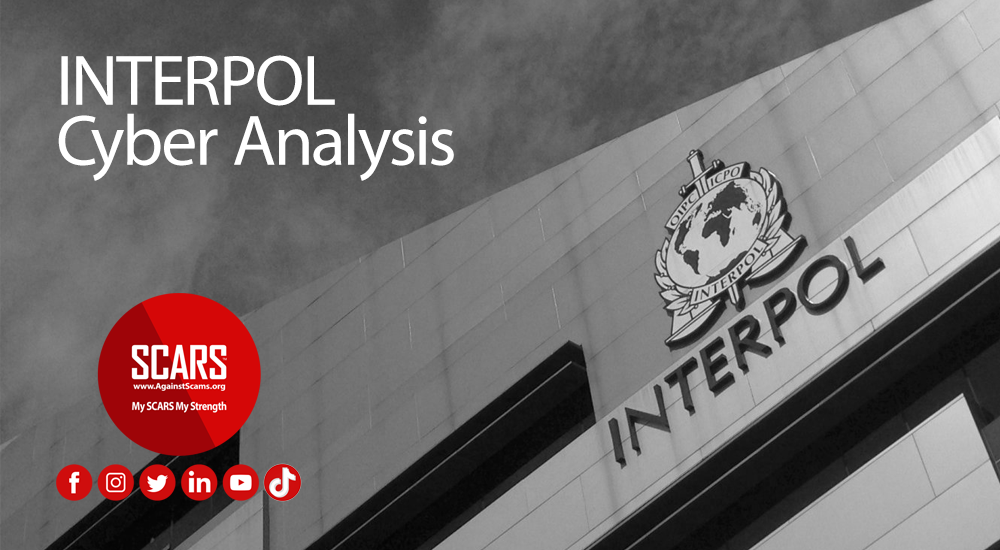INTERPOL Report Identifies Top Cyberthreats in Africa
An Analysis of Cyber Trends
Presented by SCARS
New INTERPOL Report Findings Will Support Coordinated Action In Africa Against Cybercrime
A new report published by INTERPOL (see below) gives key insights into cybercrime in Africa. The result of cross-sector collaboration, the African Cyberthreat Assessment Report 2021 will help countries in Africa to understand the most prevalent threats and formulate a coordinated regional response to cybercrime.
Digital Transformation
Cybercrimes affect all countries, but weak networks and security make countries in Africa particularly vulnerable.
While Africa has an estimated 500 million Internet users, this equates to just 38 percent of the population, leaving huge potential for growth. Africa has the fastest-growing telephone and Internet networks in the world and makes the widest use of mobile banking services.
This digital demand, coupled with a lack of cybersecurity policies and standards, exposes online services to major risks. As African countries move to incorporate digital infrastructure into all aspects of society – including government, banking, business, and critical infrastructure – it is crucial to put a robust cybersecurity framework into place.
The Main Cyberthreats In Africa
The INTERPOL report identifies the most prominent threats in Africa, based on input from INTERPOL member countries and data drawn from private sector partners.
The top five threats are:
- Online scams: fake emails or text messages claiming to be from a legitimate source are used to trick individuals into revealing personal or financial information;
- Digital extortion: victims are tricked into sharing sexually compromising images which are used for blackmail;
- Business email compromise: criminals hack into email systems to gain information about corporate payment systems, then deceive company employees into transferring money into their bank account;
- Ransomware: cybercriminals block the computer systems of hospitals and public institutions, then demand money to restore functionality;
- Botnets: networks of compromised machines are used as a tool to automate large-scale cyberattacks.
From analysis to action
“Not only do criminals exploit vulnerabilities in cyber security across the region, but they also take advantage of variations in law enforcement capabilities across physical borders,” said Craig Jones, INTERPOL’s Director of Cybercrime.
“INTERPOL’s regional cybercrime strategy for Africa provides a robust framework for sharing intelligence and coordinating action to strengthen the law enforcement response across Africa and beyond,” added Mr. Jones.
The strategy focuses on the areas of criminal intelligence, law enforcement operations, regional capacity and capabilities, and awareness campaigns for businesses and the general public.
Implementation will be driven by INTERPOL’s African Cybercrime Operations Desk, working in close partnership with key regional stakeholders, in particular, the African Union and Afripol, law enforcement communities, and the private sector.




Please Leave A Comment - Tell Us What You Think About This!